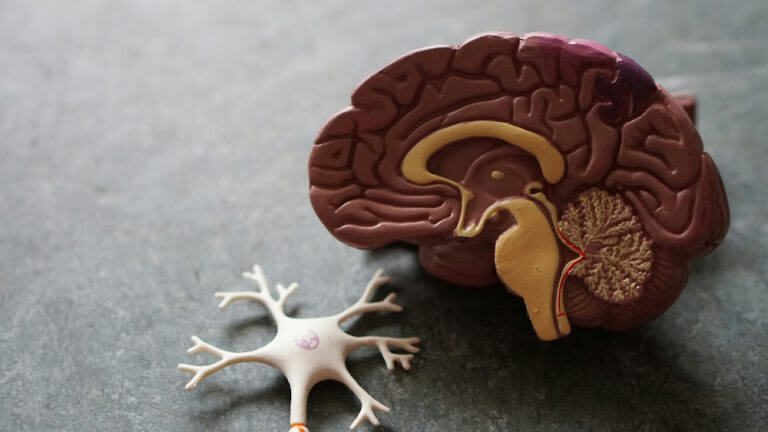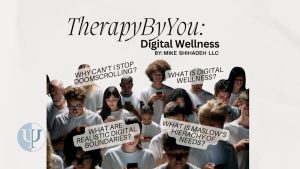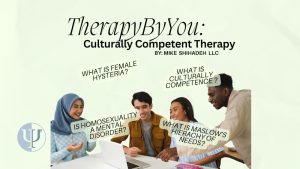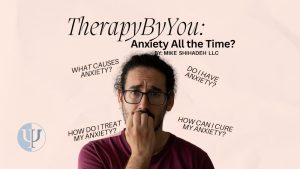Key Takeaways
- ADHD in adults is often overlooked or misdiagnosed, especially without visible hyperactivity.
- Untreated ADHD can impact work, relationships, emotional health, and self-esteem.
- Symptoms like impulsivity, disorganization, and emotional dysregulation often worsen over time without support.
- Effective treatment includes therapy, medication, lifestyle changes, and education.
- Recognizing ADHD as a neurological difference can reduce shame and build self-compassion.
Why Adult ADHD Often Goes Untreated
Many Adults with ADHD(Attention-deficit/hyperactivity disorder) without realizing it. The symptoms that defined their childhood—like restlessness, forgetfulness, or difficulty paying attention—often persist into adulthood but are misattributed to character flaws or life stress. For some, it takes a major life disruption, like repeated job loss or ongoing relationship struggles, before they begin to seek answers.
ADHD is far too often dismissed as a childhood condition, preventing adult from recognizing the signs in themselves. This is especially true because of the most popular symptom, hyperactivity, may fade, but, issues like disorganization, impulsivity, and difficulty with focus remain. These symptoms are frequently mistaken for anxiety, depression, or even laziness, which leads to misdiagnosis or underdiagnosis.

Adding to the difficulty is the stigma around mental health and neurodivergence. Many adults are reluctant to seek help or feel ashamed for needing it, especially if they’ve internalized the belief that they should “just try harder.” As a result, ADHD often goes unrecognized and untreated far longer than it should. Leading to developing coping skills that may help, but, often at a high emotional cost. These may include: perfectionism, people-pleasing, relying on constant external pressure to stay focused, and in some cases self medication. Without proper identification and support, these strategies become exhausting.
Struggling with ADHD Symptoms?
Daily Struggles and Emotional Toll
Adults who don’t realize they have ADHD often feel frustrated and overwhelmed, quicker than their peers. They may be hard on themselves for struggling with tasks that seem easy for others. Research shows that undiagnosed ADHD can lead to excessive frustration, irritability, and low self-esteem. These emotional challenges stem from constantly battling distractions, forgetfulness, or restlessness without understanding why.
“No one else is struggling with work or finishing a project; I must just be stupid.”
A misunderstood aspect of ADHD is emotional dysregulation, meaning having trouble managing emotions consistently. Small frustrations can spark disproportionate reactions. A missed deadline might trigger a wave of self-directed anger, while a misunderstanding in a relationship might lead to tears, withdrawal, or outbursts.
The brains of those with ADHD are very good at getting elevated quickly, like when a new hyper fixation pops up, this contributes to why in a conflict situation they get more expressive quicker. Neurochemicals like dopamine, which regulate mood and reward, are in short supply or poorly managed in ADHD brains. As a result, emotions often hit harder and fade slower. People with ADHD can shift from excitement to irritation or joy to despair in the span of a moment.
By recognizing that emotional intensity is a neurological response—not a personal weakness—individuals with ADHD can start to approach their emotions with more compassion and less shame. Treatment helps create more emotional stability and rewires how these intense experiences are processed and managed.
The Ripple Effect on Relationships
Ever feel like your anxiety switch is permanently stuck in the “on” position? You’re not alone, far from it. Anxiety is the most common mental health issue Americans face today. Around 19% of U.S. adults experience an anxiety disorder each year, and a whopping 31% will face significant anxiety at some point in their lives (National Institute of Mental Health, 2022). In other words, if you’re feeling anxious right now, someone else in your friend group or family probably is too.
Untreated ADHD can significantly strain relationships. Common symptoms like forgetfulness, inattentiveness, or impulsivity can lead to misunderstandings and tension. Studies show adults with ADHD experience higher rates of conflict and divorce.
- A partner might feel hurt if the other frequently interrupts or appears inattentive. The ADHD partner might feel criticized for behaviors they struggle to control, creating a frustrating cycle.

This disconnect can easily lead to arguments, resentment, and emotional withdrawal. Many couples report feeling stuck in a cycle: one person forgets or gets distracted, the other reacts, and both walk away feeling unheard and unsupported.
Parenting is similarly challenging. Adults with ADHD may struggle with consistency—setting rules one moment and changing them the next, often without realizing it. This can confuse children and lead to power struggles, tantrums, or a lack of trust in parental follow-through.
- For example, impulsively agreeing to extra TV time but later changing one’s mind leads to confusion and conflict.
Proper treatment helps clarify that ADHD behaviors are unintentional, improving understanding and reducing relationship tension. Acknowledging the role ADHD plays in these patterns is a powerful first step. With support and treatment, many people find their relationships grow stronger—not because their symptoms disappear, but because understanding replaces blame.
ADHD at Work and in Professional Life
ADHD affects professional and educational settings, creating difficulties with concentration, organization, and time management. Adults may frequently miss deadlines, forget meetings, or struggle to finish projects. These behaviors are often misread as carelessness or lack of commitment, even when the individual is trying their hardest. The result can be poor performance reviews, missed promotions, or even job loss.
Imagine being talented at your job but consistently late and forgetful with important tasks, resulting in job loss or missed promotions. Many adults with ADHD change jobs frequently, not due to a lack of ambition, but because burnout sets in quickly. Masking symptoms day after day, staying late to catch up, or constantly apologizing for mistakes becomes emotionally and physically draining.
n some cases, individuals may thrive in high-stimulation environments or roles that allow for autonomy and creative thinking. But even then, the behind-the-scenes burden of managing executive dysfunction can be heavy and isolating. The pressure to appear “put together” while struggling internally can wear down confidence and job satisfaction over time.

Financial consequences can follow, especially when job instability combines with impulsive spending or poor budgeting. For adults living paycheck to paycheck, untreated ADHD doesn’t just affect productivity—it affects financial survival.
Ready to Take Control of Your ADHD?
Does ADHD Cause Risky Behaviors and Health Consequences
Impulsivity is a core feature of ADHD, a brain constantly on the search for dopamine is likely to jump at the opportunities to receive it. As such, adults with untreated ADHD are prone to risky behaviors, such as reckless driving, compulsive spending, risky sexual behavior, or quitting jobs without a backup plan. These actions may seem sudden or extreme to others, but for someone with ADHD, they often stem from a need to escape boredom, relieve anxiety, or feel something intensely enough to override their brain’s low stimulation state.
Substance use is another significant concern. Many adults with ADHD self-medicate using alcohol, nicotine, cannabis, or stimulants—not to get high, but to slow their racing thoughts or improve focus temporarily. Unfortunately, this pattern can quickly escalate into dependency, especially if the person hasn’t been properly diagnosed or supported.
These risk-taking behaviors don’t exist in a vacuum. They often lead to strained relationships, legal trouble, or worsening mental health. Over time, the consequences pile up—creating a sense of chaos that reinforces feelings of failure, shame, and helplessness. Adults with ADHD face higher risks of chronic health issues and stress-related illnesses. Research suggests a reduced life expectancy of approximately 6-8 years due to these combined risks.
The Importance of Early ADHD Diagnosis and Management
Early diagnosis and intervention greatly improve quality of life. Understanding the condition reduces guilt and improves self-esteem. The sooner you’re aware the sooner you can start healthy coping skills that WORK for you and minimize the distress that ADHD has on your life.
Effective treatments, including therapy and medication, provide practical coping strategies and symptom management, empowering adults to leverage ADHD-related strengths such as creativity and energy.
- In short, untreated ADHD can impact every area of adult life, but recognition and treatment offer a path to thriving.
Recognizing that these patterns are rooted in neurological impulsivity—not character flaws—is a key step toward healing. Treatment can dramatically reduce risk-taking behaviors by improving emotional regulation and increasing the brain’s baseline level of focus and calm.
ADHD and the Brain – What's Really
Going On
ADHD brains are wired differently —particularly in the prefrontal cortex, the area responsible for planning, impulse control, attention, and decision-making. In adults with ADHD, this region functions differently, especially when it comes to regulating neurotransmitters like dopamine and norepinephrine.

These chemicals are vital for sustaining focus, filtering distractions, and following through on tasks. In a neurotypical brain, dopamine is released in steady waves during routine activities, which helps maintain interest and engagement. But in ADHD brains, the dopamine trickles inconsistently—or not at all—during mundane tasks. That’s why adults with ADHD often seek stimulation, multitask, or use fidgeting as a way to manually “wake up” their focus systems.
Think of the ADHD brain like having too many browser tabs open at once, each demanding attention.The brain struggles to prioritize which tab to focus on, which leads to distraction, task-switching, and mental fatigue. This analogy captures what many experience daily: a sense of constant motion but little forward progress.
When someone with ADHD is interested or emotionally engaged, their dopamine system floods appropriately, allowing for periods of intense focus—often called “hyperfocus.” But this only happens in specific, high-stimulation contexts. Outside of those, tasks that require sustained effort can feel physically uncomfortable to start or maintain.
ADHD vs. Anxiety: Similarities and Differences
ADHD and anxiety share symptoms, making misdiagnosis common. Both conditions can include restlessness, trouble focusing, and sleep difficulties. However, they differ neurologically and behaviorally:

| Symptom | ADHD | Anxiety |
|---|---|---|
| Restlessness | Driven by the brain’s norepinephrine (alertness) regulation, physical stimulation helps. | Driven by worry, often resulting in pacing for some displacement behavior |
| Difficulty concentrating | Arises from dopamine dysregulation, so their brain finds the dopamine elsewhere. | Ruminating thoughts preoccupy whatever task they’re doing |
| Irritability or Mood swings | Often due to impulsivity or frustration when demands exceed attention capabilities. | Constantly anxious means constantly in fight or flight, meaning a lower Frustration Tolerance |
| Sleep difficulties | Those with ADHD have lower GABA (rest) chemicals. | Typically involves difficulty falling asleep due to anxiety-driven overthinking, fear, or worries. |
| Neurological basis | linked to underactivity in the prefrontal cortex, which governs attention and impulse control. | Linked primarily to the overactive amygdala, our brain’s alarm system, leading to exaggerated responses to perceived threats. |
Understanding where your symptoms stem from is key. While ADHD and anxiety can coexist, effective treatment must be tailored to the root cause—not just the surface behaviors.
ADHD Effective Treatments and Therapies
Psychoeducation
Knowledge is the first step, it empowers us to stop self blaming and give us a course of research for effective coping skills.
Physical Activity
Activating the cerebellum (balance center) has been shown to improve cognitive ability and boosts dopamine and helps reduce hyperactivity and restlessness. Regular and constant physical activity is usually the first suggestion I give.

Medication
Stimulant medications, like Adderall or Ritalin, increase dopamine and norepinephrine levels in the brain, helping improve focus, attention, and impulse control.
Talk Therapy
Teaches organizational skills, challenges negative thought patterns, and develops coping strategies. Unlike coaching, therapy addresses deeper emotional and psychological patterns underlying behaviors or how past experiences shape our present actions.
Combining multiple methods, yields the best results. Medication is effective for giving yourself the chance to implement lessons from therapy. Otherwise it’s like putting a Band-Aid on something that needs stiches.
Hope, Help, and Moving Forward
A diagnosis doesn’t define who you are; it simply gives language to the struggles you’ve likely battled silently for years. It reframes your past, offering clarity and compassion where once there was only confusion and self-blame.
Understanding that your brain works differently allows you to shift from self-criticism to self-advocacy. Instead of asking, “What’s wrong with me?” the question becomes, “What systems or support do I need to thrive?” This shift in mindset is often the beginning of real healing.
Treatment opens doors to new possibilities—not just in productivity or focus, but in emotional wellbeing, relationships, and life satisfaction. Adults with ADHD often find that once they stop fighting their own wiring and start working with it, their creativity, passion, and unique strengths shine through more clearly.

Take the First Step Towards Better ADHD Management
Frequently Asked Questions
Common signs include chronic disorganization, forgetfulness, emotional outbursts, difficulty starting or finishing tasks, impulsive decisions, and persistent restlessness. Many adults also struggle with time management and maintaining relationships or careers.
Untreated ADHD can cause miscommunications, forgotten commitments, emotional reactivity, and inconsistency—leading to frustration and conflict with partners, friends, or family. Many relationships improve with understanding and proper support.
Yes, it can be. Impulsivity may lead to risky behaviors like reckless driving or substance abuse, while chronic stress can contribute to serious health issues. Without support, untreated ADHD increases the risk of anxiety, depression, and lower life satisfaction.
ADHD symptoms in adults are often mistaken for personality flaws or stress. Many were never identified in childhood or had their struggles minimized. A lack of awareness and stigma also prevent people from seeking help.
Absolutely. The ongoing struggle to manage daily life, combined with repeated failures and self-blame, often leads to anxiety, depression, or both. Emotional dysregulation is a core ADHD symptom that can intensify these experiences.
Yes, therapy—can help adults develop coping skills, restructure negative thought patterns, and improve executive functioning. Therapy also addresses emotional impacts like shame or self-esteem issues.
Ignoring ADHD often leads to worsening symptoms, strained relationships, poor job performance, and increased mental health challenges. Without proper support, individuals may rely on unhealthy coping mechanisms like avoidance or substance use.
Adults with untreated ADHD face higher rates of heart disease, obesity, sleep disorders, and substance use. Research also links ADHD to a reduced life expectancy due to stress, accidents, and preventable medical issues.




